Last week in the first edition of the ‘Meet the Interns’ series, we met seasoned intern Christen, a senior who began working at the OEP in her second semester. This week, we will meet two more talented interns, seniors Ben and Adrianna. Environmental crusaders in their own right, Ben and Adrianna are campus leaders who have tailored both their academic and work experience to fit their passion for the environment.

An Ecology and Evolutionary Biology major, Ben has defined this pursuit with active campus advocacy, serving as an officer in ECOalition and former Chair of the Honors’ Council Environmental Committee. These positions have allowed him to support initiatives such as the creation of a sustainability general education requirement. For Adrianna, an Environmental Studies major, her dual involvement as an intern and co-President of EcoHusky has enabled her push to prevent food waste and promote green offices across campus.
While they both have impressive track records as they begin their third consecutive year at the OEP, the question still remains: who are Ben and Adrianna?
To his colleagues at the OEP, Ben is a knowledgeable resource with a wealth of information regarding everything from sustainability-related courses on campus, to the best hiking trails in the Alps. His keen attention to detail allows him to serve as a lead intern on several projects such as the EcoMadness competition, the Environmental Leadership Awards, and the development of interpretive signs about wildlife and natural resources for hiking trails in the Hillside
Environmental Education Park. Outside of the OEP, Ben is an avid world traveler, with thirteen passport stamps to prove it. Through his travels, Ben has taken on several roles, such as serving as a UConn delegate at the UN’s Climate Summit in Morocco, a student of field ecology at a nature preserve in South Africa, a backpacker in northeastern Europe, and, this summer, a student at the prestigious Arava Institute for Environmental Studies in Israel. An aspiring wildlife conservationist with a wide variety of talents, Ben is well on his way!
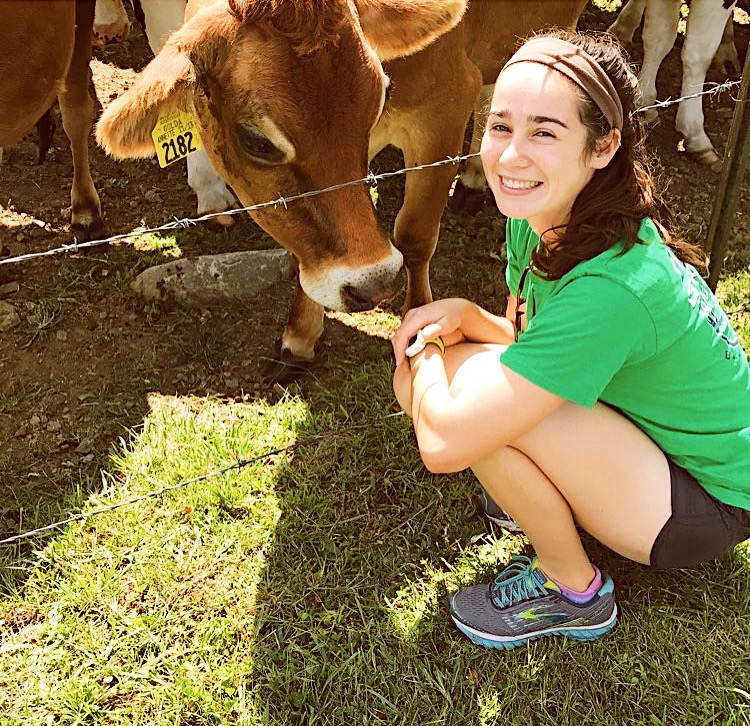
Intern Adrianna also has several talents and extra-curricular leadership activities, all punctuated by her positive attitude and welcoming demeanor. Known by all as a kindred spirt, Adrianna is gifted in her ability to bring people together in an engaging and productive environment. That skill helps her succeed in coordinating the Green Office Certification Program, where she has enjoyed leading lively discussions with Green Office Team Organizers, the OEP’s “GO TO” list of environmentally-minded faculty and staff who have taken the lead in certifying their departments. Her range of skills also allows her to take on other projects such as the Tree Campus USA application, the corresponding Arbor Day Celebration, and completing the Sustainable Dining and Waste Reduction sections of the Sierra Club survey. Given her wide range of contributions, Adrianna has been a key change agent at UConn!
And there we have it: part two of the ‘Meet the Interns’ special series. Next week we will profile intern Katie – an environmental engineering student and avid ‘Chopped’ fan!


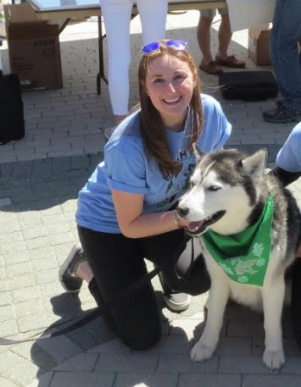
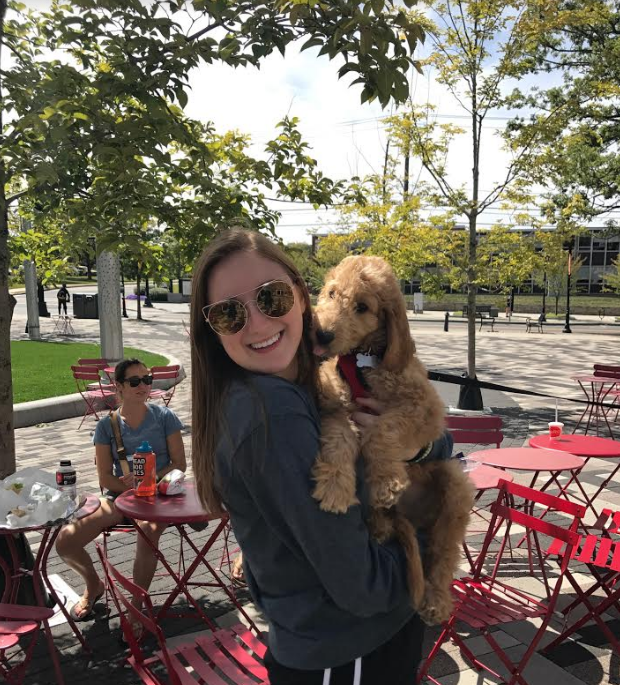
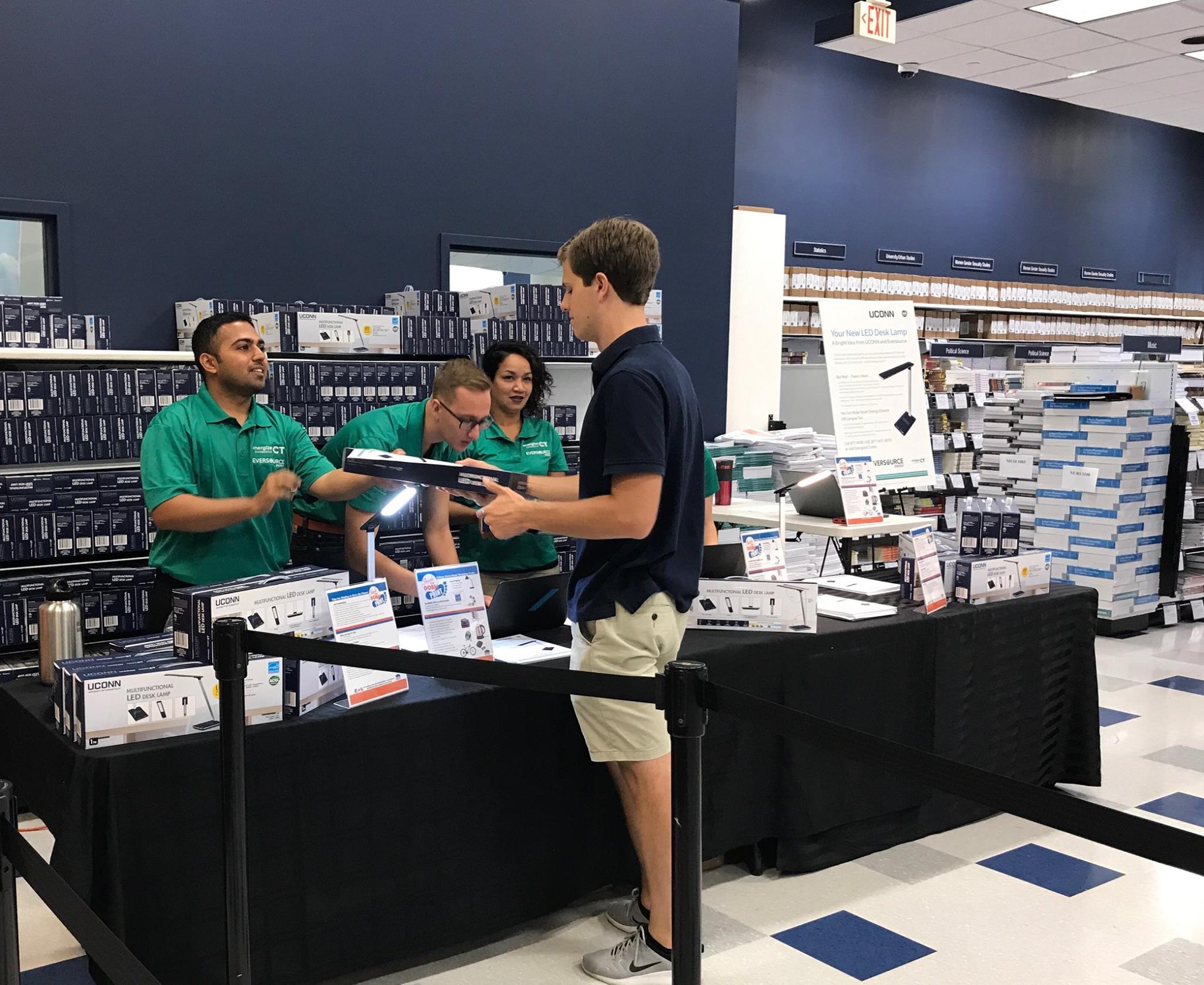


 On Friday, June 2nd, President Susan Herbst signed the Grand Coalition Statement on the Paris Agreement, joining 183 universities, 125 mayors, 9 governors, and over 900 businesses who will continue to recognize the United States’ contributions to the Paris Climate Agreement despite recent policy decisions from Washington. Please visit the
On Friday, June 2nd, President Susan Herbst signed the Grand Coalition Statement on the Paris Agreement, joining 183 universities, 125 mayors, 9 governors, and over 900 businesses who will continue to recognize the United States’ contributions to the Paris Climate Agreement despite recent policy decisions from Washington. Please visit the 


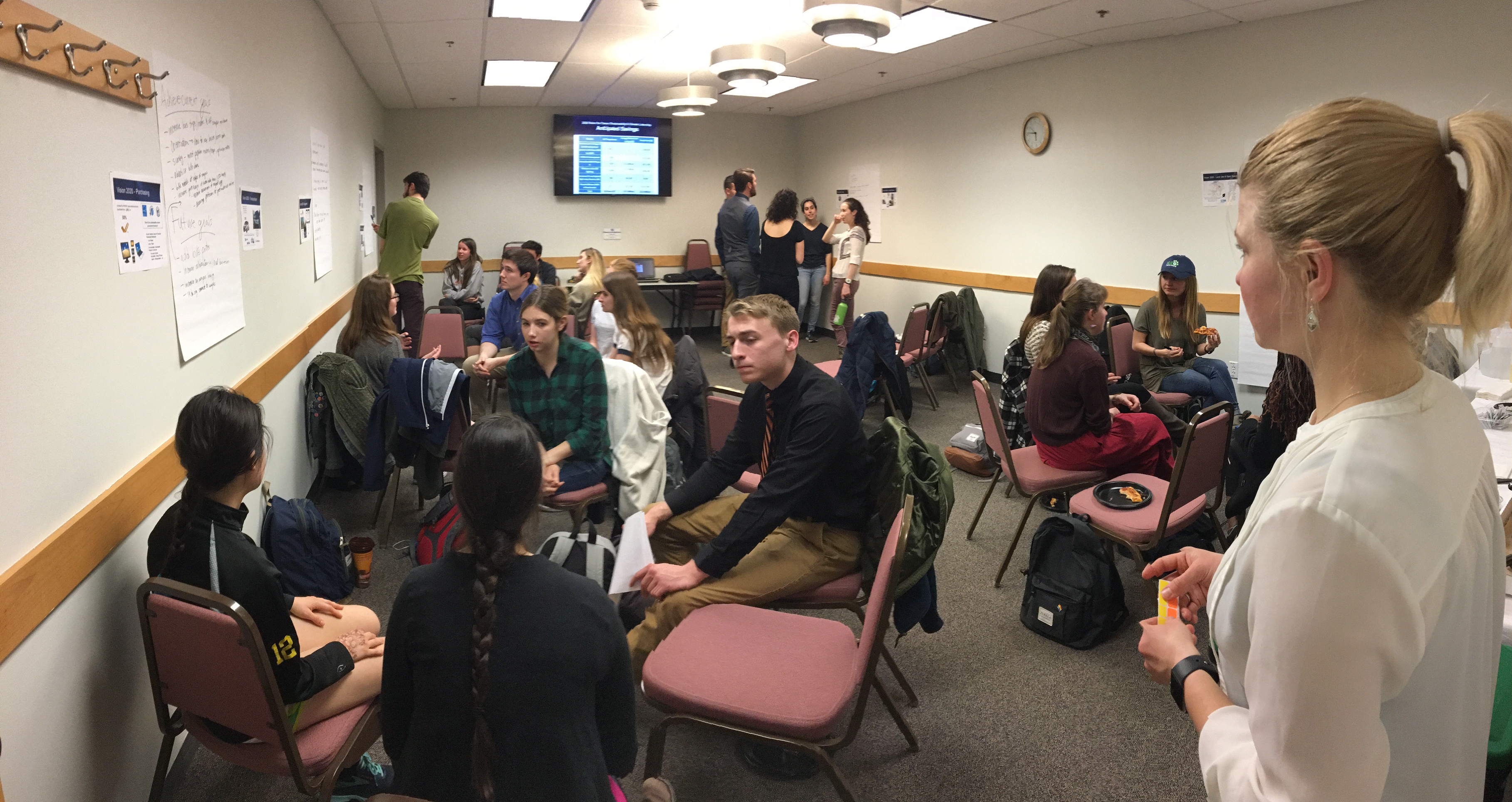





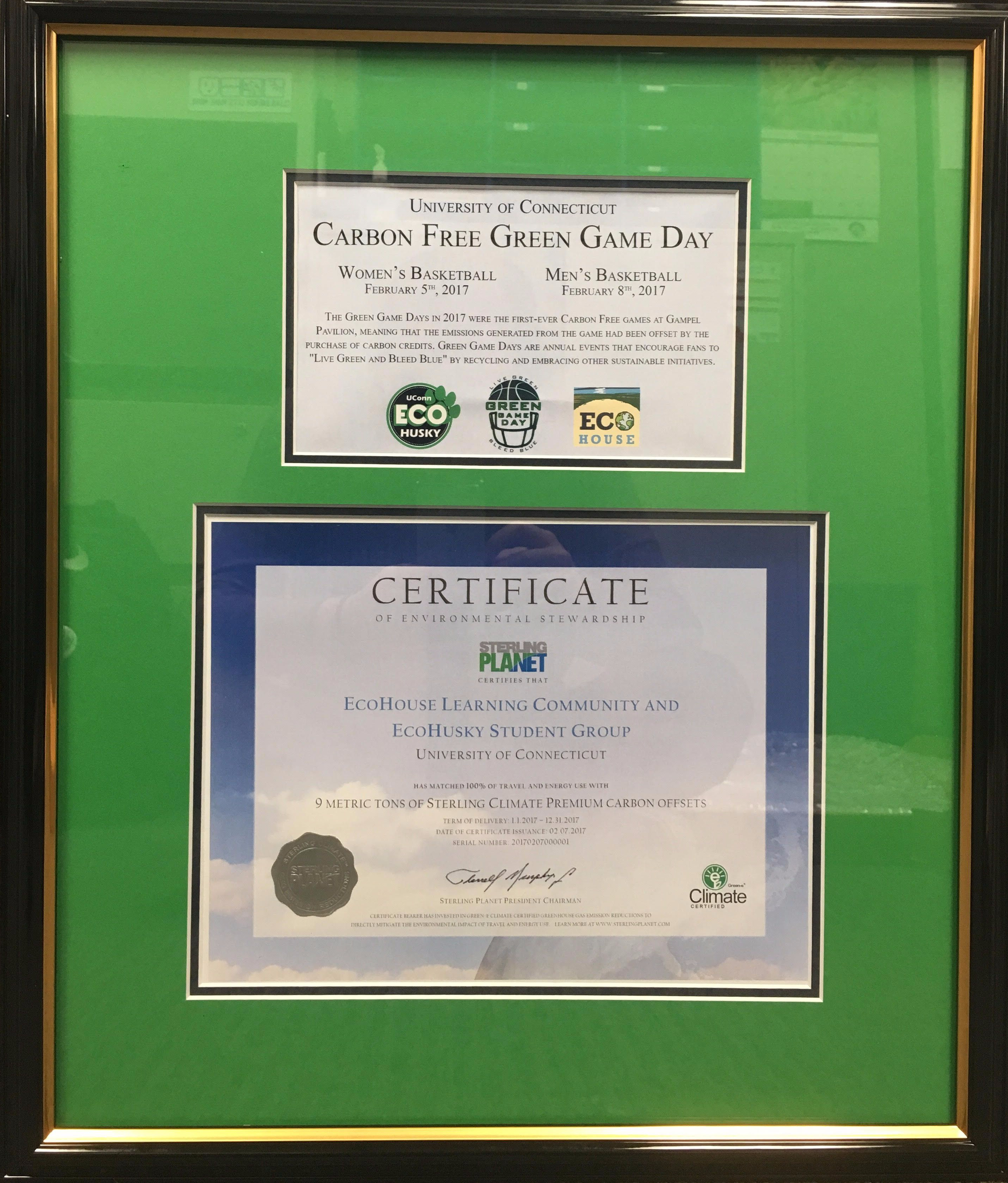 Every spring, volunteers from the EcoHusky student group and EcoHouse learning community come together to raise environmental awareness at Basketball Green Game Days. By teaching fans how to recycle, and collecting bottles at the end of the game, volunteers always play an integral role in making these events “green.” This year’s Green Game Days were special because, for the very first time, the Office of Environmental Policy purchased carbon offsets to make the games carbon-free!
Every spring, volunteers from the EcoHusky student group and EcoHouse learning community come together to raise environmental awareness at Basketball Green Game Days. By teaching fans how to recycle, and collecting bottles at the end of the game, volunteers always play an integral role in making these events “green.” This year’s Green Game Days were special because, for the very first time, the Office of Environmental Policy purchased carbon offsets to make the games carbon-free!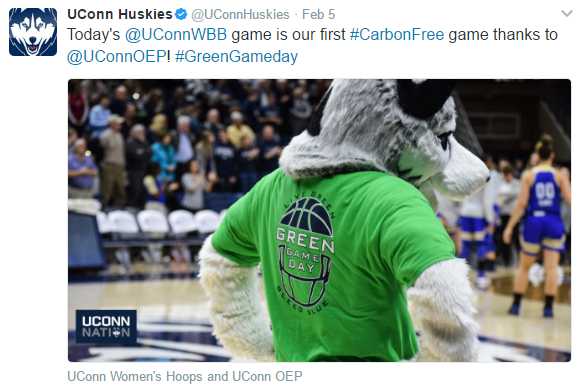 We would like to thank all of our volunteers for their time and enthusiasm. With their help, we were able to collect enough bottles to donate $40 to the Campus Sustainability Fund to support more programs and initiatives to raise environmental awareness. We would also like to thank UConn Athletics for their time and effort to promote sustainability. We greatly appreciate the P.A. announcements, video board slides, and social media posts throughout the events. We look forward to working with you at future Green Game Days!
We would like to thank all of our volunteers for their time and enthusiasm. With their help, we were able to collect enough bottles to donate $40 to the Campus Sustainability Fund to support more programs and initiatives to raise environmental awareness. We would also like to thank UConn Athletics for their time and effort to promote sustainability. We greatly appreciate the P.A. announcements, video board slides, and social media posts throughout the events. We look forward to working with you at future Green Game Days!
